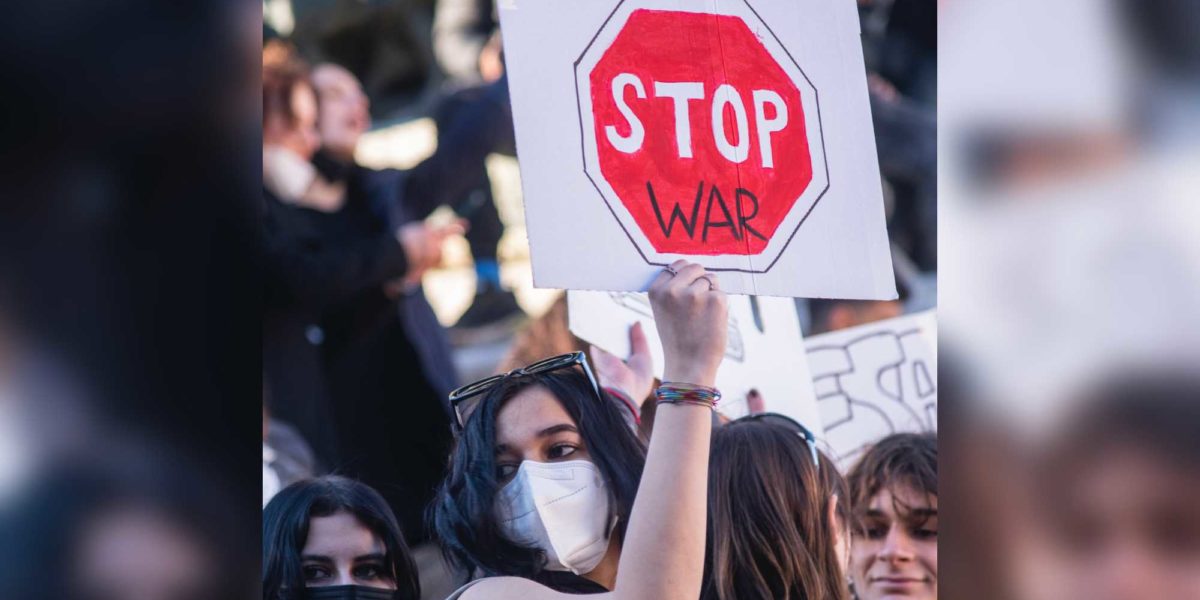Apparently discussing the “path to peace” in Ukraine is hateful. After trying to ban a talk questioning Canada’s role in the NATO proxy war a Ukrainian student group smeared it.
Two weeks ago, I spoke with Tamara Lorincz and Miguel Figueroa at a Carleton University event titled “The War in Ukraine: What is the Path to Peace?” The Carleton Ukrainian Students’ Club sought to have the Ottawa Peace Council event cancelled.
After failing they released a statement claiming Ukrainians on campus faced hate, which they linked to the talk. In response the student paper published “Carleton student groups address anti-Ukrainian hate on campus” and CBC Ottawa published “Anti-Ukrainian vandalism, harassment rising at Canadian universities, students say.”
The Carleton campaign follows a similar effort at the University of Victoria. The Ukrainian Students’ Society accused the Young Communist League (YCL) of hate. The media has echoed the campaign with recent articles headlined: “UVic launches investigation into alleged anti-Ukrainian harassment on campus” (CTV Vancouver Island); “Ukrainian students at UVic ask for security after harassment” (Times Colonist); “Ukrainian students say so far, UVic probe into harassment allegations hasn’t involved them” (CHEK News); “Concern over ‘anti-Ukrainian hatred’ on Canadian campuses” (Times of Higher Education).
Notwithstanding the claims, there’s likely never been greater sympathy for Ukrainian Canadians, a community that’s faced its share of discrimination, including large-scale internment during and after World War I. Because the Ukrainian student groups’ attacks are meant to promote NATO’s proxy war the media happily echo them.
In another sign of the McCarthyite political climate, Canada’s Ambassador to the UN called those promoting an upcoming antiwar demonstration in Washington DC “useful idiots.” Bob Rae tweeted a photo of the February 19 “Rage Against the War Machine!” march with the note, “And so another generation of what Lenin used to call ‘useful idiots’ is born.”
The war hysteria is remarkable. Last Saturday defence minister Anita Anand tweeted a video of tanks loaded onto military aircraft, noting “Battle tanks are on their way to help Ukraine. The first Canadian Leopard 2 is enroute. Canada’s support for Ukraine is unwavering.” A few days earlier Anand tweeted, “Canada stands with Ukraine. In the past few weeks, I’ve announced that we will provide Ukraine with: A NASAMS air defence system. 200 armoured personnel carriers. Leopard 2 main battle tanks.”
For her part, Melanie Joly, Canada’s foreign affairs minister, declared that war is peace: “Canadians know that in order to get to lasting peace, we need to make sure that we continue to arm Ukraine.”
Joly’s friend and ally has admitted the obvious. German foreign minister Annalena Baerbock recently let slip that “we are fighting a war against Russia.”
While few admit it, Canada is effectively at war with Russia. Canada is sharing critical military intelligence, training Ukrainian troops and delivering huge quantities of arms while Canadian special forces and former troops operate in Ukraine. The Globe and Mail recently published a two-page spread on a former Canadian soldier, firing a Canadian-made sniper rifle, who claims to have killed 15 Russians in Bakhmut on December 24 and 25. “Teflon” said part of what prompted him to go public with his killing exploits were the recent deaths of Joseph Hildebrand and Grygorii Tsekhmistrenko, two Canadian members of the International Legion.
In another sign that the US and NATO are at war with Russia the Washington Post reported on Thursday that the Ukrainians almost never launch missiles from their US-supplied HIMARS without the US military providing strike coordinates. In a less publicized step up the escalatory ladder, Washington announced last week that it was delivering Ground Launched Small Diameter Bombs that have twice the range of the current rockets launched from the HIMARS.
Where does the escalation end? When Ukraine’s infrastructure is completely destroyed and that country is no longer capable of sending western weapons to the front? At the brink of nuclear war? Further?
To blunt the escalatory pattern the work of the YCL, Ottawa Peace Council and other antiwar forces is essential. And peace voices won a small breakthrough recently. Facing criticism for endorsing Canada’s recent tank donation, Green party leader Elizabeth May shifted gears telling parliament that “arms will not end the war.” In what was (I believe) the first statement in the House of Commons against Canada’s $1.5 billion in arms deliveries to Ukraine, May called for diplomacy and peace talks.
Predictably, the NATO proxy warriors slammed May’s tepid comment. When the fighting ends – and propaganda subsides – the antiwar position will be viewed as reasonable, even righteous. But until then, calls for peace and an end to the proxy war will be described as hate.



